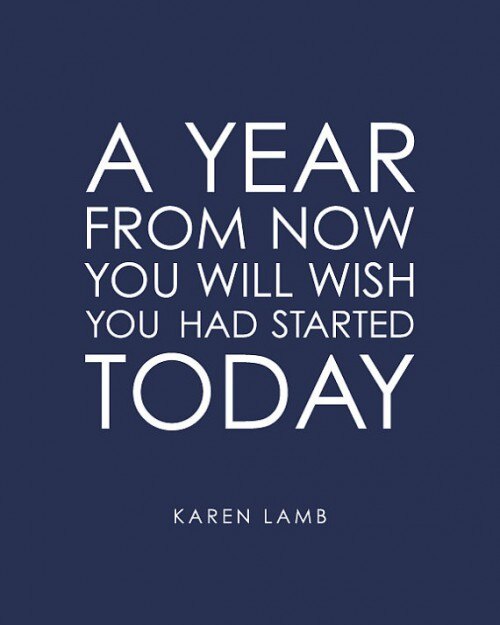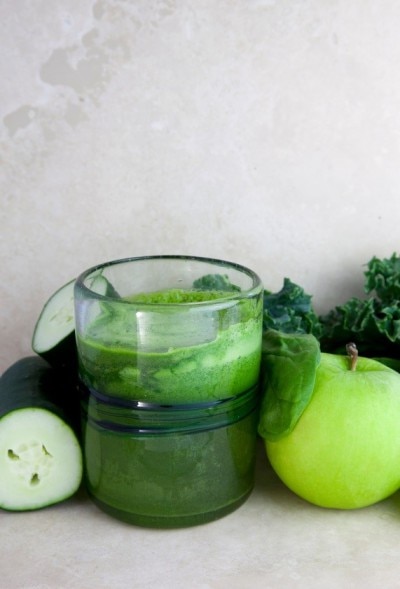Five to six days a week you’re grinding it out, picking up weights and slamming them down like nobody’s business. You’re an animal! Seriously, you’re eating like a bird and sweating like a horse. Yet the weight isn’t falling off the way you hoped. What gives? Unfortunately, there are many misconceptions about weight loss – from fad diets to fasting workouts. Any of these five common theories could be the bane of your never-budging belly.
You think: I need to be in the right mindset to lose weight. If I have too much on my plate, it’ll never work.
The reality: Following a weight-loss plan will consume a lot of your time and energy. So, yes, being ready and willing to take on the task is certainly how you should launch this expedition. That being said, don’t put off to tomorrow what can be done today. If you’ve been hemming and hawing over when to revamp your lifestyle, consider yourself ready. Giving it that much thought means you have the motivation and obviously have a goal, but maybe you’re just missing a support system. That’s an easy fix: call your best friend. Chances are they’re waiting for you to ask for help.
You think: If I work out on an empty stomach, I’ll burn more calories from fat.
The reality: Training your body to burn fat for fuel is a crucial component of achieving a leaner, more efficient figure. This is particularly true for endurance athletes who need to sustain energy levels for long periods of time. However, exercising on empty is not personal-trainer-approved. Let’s say you do cardio first thing in the morning without eating. Due to the lack of glycogen from fasting for so many hours, your body will be forced to rely on energy stores in your muscles to power you through the workout. Translation: you’ll be burning muscle instead of fat. Yeah, not good. Plus, you won’t be able to push as hard or with as much intensity, which no trainer or workout buddy will appreciate.
Instead, turn to the many healthy ways to train your body to more efficiently burn fat:
1. Stay in a moderate heart rate zone during a cardio session that lasts 45 minutes or longer (this can theoretically be done without eating beforehand).
2. Supplement with natural formulas for an extra boost to your everyday routine.
3. Add short bursts of high intensity to a normal workout, such as jumping jacks between strength sets or 30-second sprints during a 3-mile run.
You think: I need to stop eating at least 2 hours before bedtime.
The reality: The time of day you choose to eat dinner is not nearly as essential as it is to keep tabs on your total caloric intake. However, eating a heavy meal or eating close to bedtime can interrupt sleep. Lack of quality sleep can mess with hormone levels, leading to increased appetite. But there’s a simple solution for that. Give your body ample time to eat, digest and wind down in the evenings. For those prone to heart burn or other digestive issues, I’d recommend steering clear of any irritating foods at night. Choose fermented fare, like kefir or kombucha tea, since they’re easier for the body to digest. If you really can’t avoid eating your last meal at 9 p.m., a digestive enzyme supplement can help move things along in time to turn down.
You think: Living on salads and juices is a sure-fire way to lose weight fast.
The reality: No, you don’t have to eat like a rabbit to lose weight. (Besides, rabbits don’t have juicers.) In fact, selecting a salad every time you eat out might be a bigger mistake than ordering the burger you really wanted. Loaded with creamy dressing, more than one serving of croutons, bacon bits and other high-fat, low-nutrient toppings, restaurant-style salads can become major calorie bombs. And juicing…well, it’s no angel either. Juicing your fruits and veggies can actually strip them of their beneficial properties, including fiber and essential vitamins and minerals found in the skin. Not to mention the lack of variety you’ll subject yourself to when there are countless other ways to eat healthy. Simply choose the more wholesome version of your favorite foods, such as whole grain pasta and brown rice, unsweetened or naturally sweetened cereal and snacks with as few ingredients and as little processing as possible.
You think: Gluten-free pasta and breads are better for me than the regular white stuff.
The reality: Going gluten free does not automatically translate to a healthier body – unless, of course, you have a sensitivity or were diagnosed with Celiac. Gluten-free convenience foods have to make up for what they’re lacking, which can mean taking in more sodium or added sugar than you really need. Do you know someone who lost weight by kicking gluten? The upside is that gluten-free diets tend to make people more closely watch what they eat. Without even thinking about it, you could find yourself picking healthier grains and more whole foods simply because gluten lurks in so many unsuspecting places. Bottom line: If a gluten-free lifestyle is your bread and butter, you’ll still need to monitor your daily calories and macronutrients to achieve weight-loss success.


